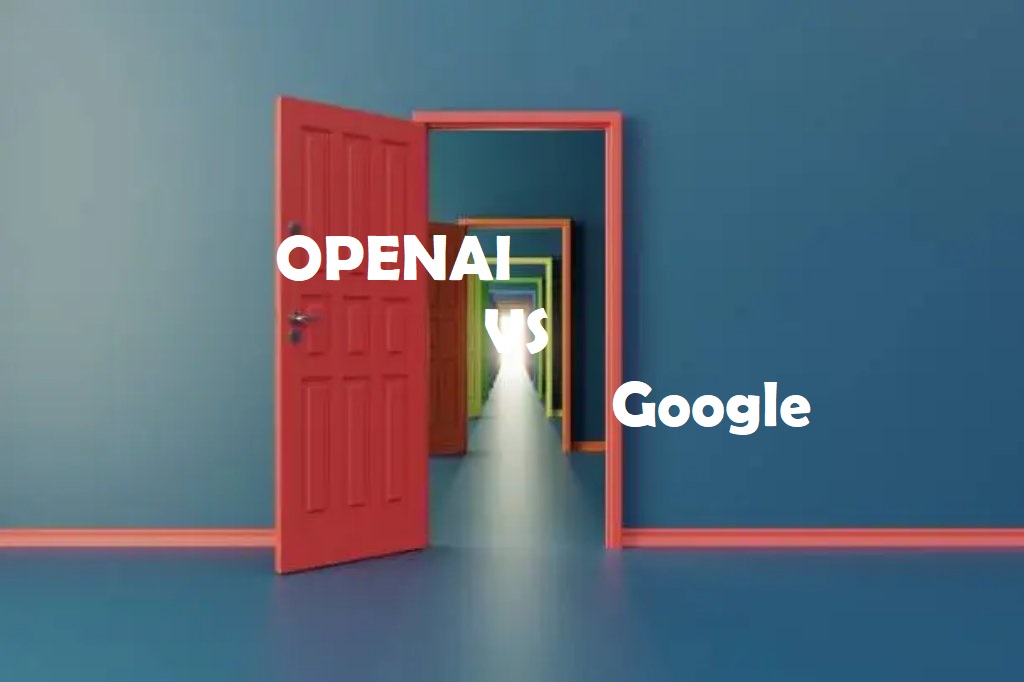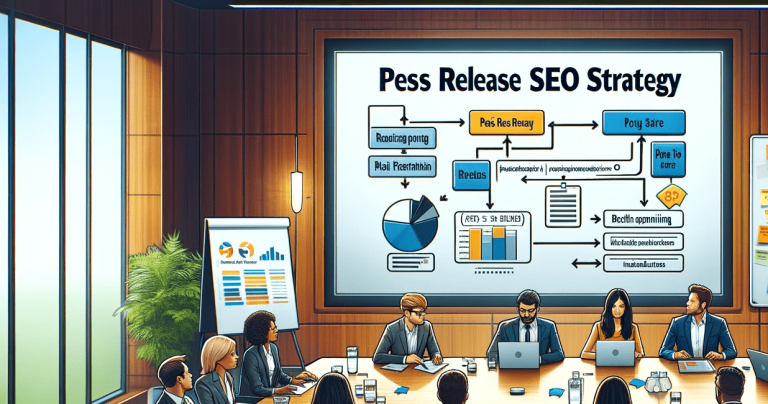OpenAI vs. Google: Which Search Engine Will Be More Powerful?
As of now, OpenAI hasn’t officially announced plans to launch a search engine. However, the idea of integrating OpenAI’s technology into a search engine environment is intriguing and could be considered a logical extension of its capabilities in AI and natural language processing. Here are a few reasons why an organization like OpenAI might explore developing a search engine:
- AI-Driven Innovation in Search: OpenAI’s advanced capabilities in machine learning and natural language understanding, particularly through models like GPT-3, could provide a new approach to how search queries are processed and answered. Unlike traditional keyword-based searches, an AI-driven system could understand context and provide more nuanced and conversational responses.
- Competition and Diversification: By developing a search engine, OpenAI could position itself as a competitor in the digital search arena, which is currently dominated by a few key players like Google and Bing. This diversification would also allow OpenAI to explore and innovate new use cases for its technology.
- Data Generation and Training: Running a search engine generates vast amounts of data about user queries, interactions, and preferences. This data can be invaluable for training AI models, making them smarter and more context-aware.
- Ethical AI Search: OpenAI has a strong focus on the ethical implications of AI. Launching a search engine could allow it to implement and control ethical guidelines directly, ensuring that AI’s influence in disseminating information adheres to high ethical standards, such as privacy protection and unbiased content delivery.
- Commercial Opportunities: Developing a search engine offers significant commercial opportunities, including advertising, partnerships, and premium services. These can fund further research and development in AI.
While these points speculate on why OpenAI might consider entering the search engine market, any official move would depend on strategic priorities and market conditions. If OpenAI ever decides to announce such a project, it would likely involve extensive testing and a clear outline of how their AI technologies could enhance the search experience differently from existing technologies.
How Can OpenAI Technologies Boost Your SEO Efforts?
OpenAI’s technologies, particularly its advancements in natural language processing (NLP) and machine learning, can significantly benefit Search Engine Optimization (SEO). Here are several ways in which OpenAI’s capabilities can be leveraged to enhance SEO strategies:
1. Content Creation and Optimization
OpenAI’s models, such as GPT (Generative Pre-trained Transformer), can generate high-quality, relevant content quickly. This can be especially useful for creating blog posts, product descriptions, and other content that is optimized for search engines. These AI models can ensure the content is not only engaging and informative but also incorporates key SEO elements like targeted keywords, semantic richness, and appropriate readability levels.
2. Keyword Research and Strategy
AI can analyze large datasets to identify trending topics and emerging keywords that might not be visible through traditional research methods. OpenAI’s models can help predict keyword relevance and effectiveness, providing SEO strategists with sophisticated tools to optimize their keyword strategies.
3. Enhancing User Experience
OpenAI’s NLP capabilities can improve user engagement by powering chatbots and virtual assistants on websites. These AI-driven tools can provide instant assistance to visitors, improving interaction rates and reducing bounce rates, which are beneficial for SEO.
4. Content Personalization
By analyzing user data, OpenAI models can help personalize content for different segments of a website’s audience. Personalized content increases user engagement and time spent on a page, which are positive signals to search engines.
5. Semantic Search Optimization
As search engines evolve to understand searcher intent and the contextual meaning of queries, the ability of AI to process and generate natural language can play a significant role. OpenAI’s technologies can help create content that better aligns with semantic search principles, improving content visibility and relevance in search engine results pages (SERPs).
6. SEO Audits
AI can automate the analysis of a website’s SEO performance, identifying issues like broken links, slow loading pages, or suboptimal meta tags. This can make SEO audits more frequent and detailed, ensuring that websites maintain optimal performance.
7. Predictive Analytics
Using AI to analyze trends and patterns in user behavior and search engine updates can provide predictive insights into future SEO strategies. OpenAI’s capabilities in machine learning can be used to forecast changes in search engine algorithms, helping SEO professionals adapt their strategies proactively.
8. Backlink Analysis
AI can efficiently analyze backlink profiles, assessing the quality and relevance of each link and its impact on SEO. This can help in refining link-building strategies and identifying potentially harmful links more effectively.
9. A/B Testing for SEO
OpenAI can automate the process of A/B testing different SEO tactics, from headline options to meta descriptions. This can lead to more data-driven decisions that optimize search rankings and user engagement.
10 Reasons Why OPENAI Can Be More Valuable for Business Advertisers
OpenAI’s advanced AI technologies offer a range of capabilities that can be incredibly valuable for business advertisers. Here are ten reasons why OpenAI can significantly enhance advertising efforts:
1. Improved Ad Personalization
OpenAI’s AI models can analyze consumer behavior and preferences to enable hyper-personalized advertisements. This leads to higher engagement rates as ads are more relevant to the individual consumer’s interests and needs.
2. Enhanced Content Creation
Using models like GPT, advertisers can generate creative, engaging content for ads quickly and efficiently. This includes everything from crafting compelling ad copy to creating varied content for different platforms or audiences.
3. Automated Campaign Management
AI can automate routine tasks associated with ad campaigns, such as adjustments based on performance metrics, budget allocation, and bid management. This automation saves time and reduces human error, allowing advertisers to focus on strategy and creative elements.
4. Advanced Audience Targeting
By leveraging AI’s ability to analyze vast datasets, OpenAI can help identify and segment audiences more effectively. This precision targeting ensures that ads reach the most appropriate and potentially responsive audience segments.
5. Predictive Analytics
OpenAI can forecast future trends and consumer behaviors using historical data and machine learning models. Advertisers can use these insights to anticipate market changes, adjust strategies proactively, and gain a competitive edge.
6. Optimization of Ad Spend
AI-driven analytics can optimize where and how advertisers allocate their budgets to maximize ROI. Machine learning algorithms can continuously learn and adjust to ensure the most efficient use of advertising dollars.
7. Real-Time Decision Making
OpenAI can process and react to data in real-time, allowing for dynamic ad adjustments. This capability is crucial in environments like programmatic advertising, where speed and efficiency dictate success.
8. Chatbots and Virtual Assistants
AI-powered chatbots and virtual assistants can interact with customers directly, providing support and promoting products or services interactively. These tools can lead to increased customer engagement and satisfaction.
9. Sentiment Analysis
OpenAI’s AI models can analyze public sentiment and feedback from social media and other platforms. Understanding sentiment can help advertisers tailor their campaigns to better resonate with their audience and avoid potential PR issues.
10. Creative Testing and Optimization
AI can automatically test different creative elements of advertisements to determine what works best. This includes testing different images, headlines, or calls to action to refine ad effectiveness continually.
Comparative Analysis: OpenAI vs. Google in Key Technology and Market Domains
Below is a table that summarizes key comparison points between these two entities:
| Comparison Aspect | OpenAI | |
|---|---|---|
| Core Technology | Advanced AI, focusing on language models like GPT-3. | Diverse technologies spanning search, ads, cloud, etc. |
| Primary Services | AI research, language models, API services. | Search engine, advertising, cloud services, YouTube, etc. |
| User Base | Developers, researchers, businesses using AI. | Billions of users worldwide across all services. |
| Monetization | API subscription fees, partnerships. | Advertising, cloud services, app ecosystems, hardware. |
| Market Presence | Niche, primarily in AI development communities. | Global, dominant in many sectors. |
| Innovation Focus | Leading-edge AI research and applications. | Broad innovation across AI, quantum computing, hardware. |
| Data Handling | AI ethics and responsible AI usage. | Extensive data collection with complex privacy issues. |
| Customization | High customization in AI applications. | Wide customization across products and services. |
| Accessibility | API-based services, requires technical expertise. | Mass-market products designed for ease of use. |
| Impact on Advertising | Emerging potential in personalized advertising. | Established leader in targeted and programmatic ads. |
SEO Optimizing for OpenAI: Key SEO Strategies to Harness AI-Driven Search
As search technologies evolve with the integration of artificial intelligence, optimizing for AI-driven platforms like those developed by OpenAI presents a unique set of challenges and opportunities for SEO professionals. Here’s a breakdown of what SEO should focus on when considering OpenAI’s impact on search landscapes:
1. Understanding Natural Language Processing (NLP)
OpenAI’s models, such as GPT-3, are based on advanced NLP capabilities. SEO strategies should adapt to these AI models by focusing on semantic search, meaning the content should be optimized not just for keywords but for context and user intent. This involves creating naturally flowing content that answers questions and provides value, which AI systems are likely to prioritize.
2. Emphasizing User Experience (UX)
AI-driven search engines will prioritize user experience heavily, analyzing how users interact with content. SEO strategies should ensure that websites are not only content-rich but also intuitive and user-friendly. This includes mobile optimization, fast loading times, and engaging design elements that reduce bounce rates and encourage longer visit durations.
3. Content Quality and Depth
High-quality, authoritative content is likely to be favored by AI-driven search platforms. SEO efforts should focus on producing well-researched, in-depth content that covers topics comprehensively. This also means updating and maintaining older content to keep it relevant and authoritative.
4. Voice Search Optimization
With AI capabilities, voice search is becoming increasingly important. Optimizing content for voice search involves focusing on conversational keywords and phrases, structured data, and local SEO, as many voice searches are local in nature.
5. Leveraging Structured Data
Structured data markup helps AI understand the content of a website, making it crucial for SEO. Implementing schemas such as FAQPage, HowTo, and Article can help AI models recognize content components and directly answer queries more effectively.
6. Building Ethical Link Practices
AI-driven search engines will be better at detecting link schemes and unethical SEO practices. Focus on building genuine, high-quality backlinks from reputable sources within the same niche. This includes guest blogging, collaborations, and creating shareable content.
7. Predictive Search Behaviors
AI models can predict user behaviors and preferences. SEO strategies should include analyzing data trends and user engagement to predict future content needs. This proactive approach can position content effectively as user interests evolve.
8. International SEO and Language Adaptations
As AI improves at language processing, there’s a growing need to optimize for multiple languages and global audiences. This involves not just translation but also cultural customization to enhance relevance in different regions.
9. Ethical AI and Transparency
With a focus on ethical AI, OpenAI may prioritize content that is created with ethical considerations in mind. SEO strategies should ensure transparency, especially in industries like health and finance, where misinformation can have serious consequences.
10. Continual Learning and Adaptation
Finally, as AI is continually evolving, SEO strategies must adapt by staying updated with the latest AI developments and search engine behaviors. This includes continuous learning and applying new insights to SEO practices.
Optimizing for AI-driven search engines like those potentially developed by OpenAI requires a blend of technical SEO skills and creative content strategies. By focusing on these areas, SEO professionals can ensure their sites not only perform well today but are also primed for future AI advancements in search technology.







